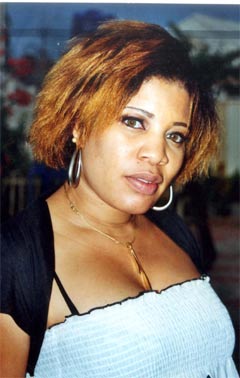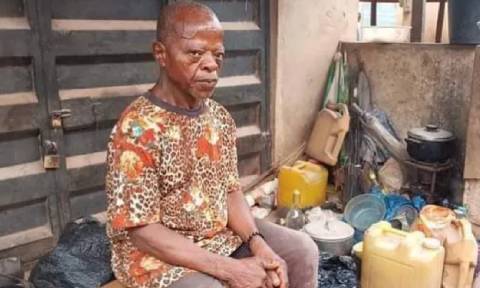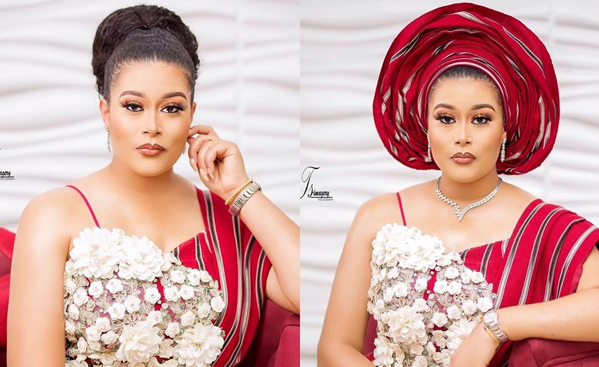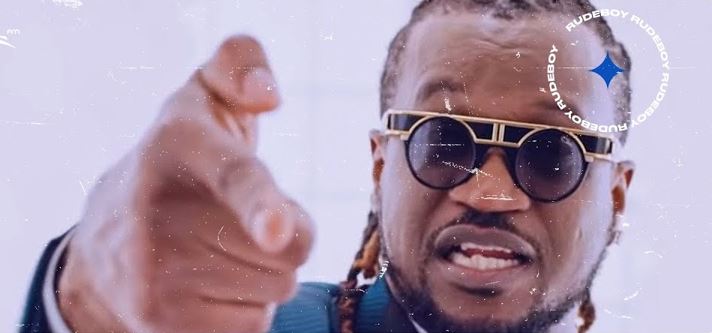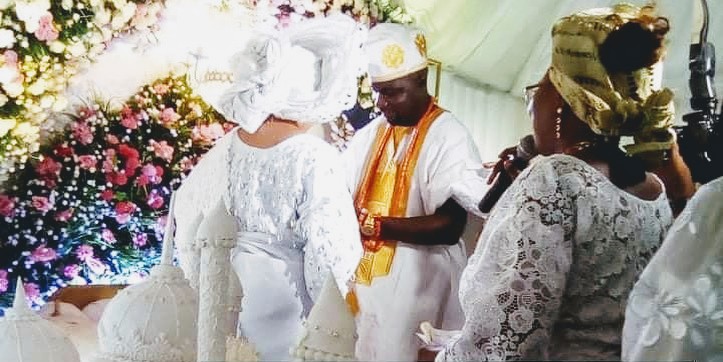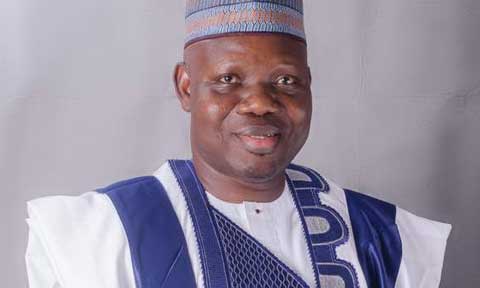
Segun Adewale was once the toast of Juju music fans. But for some time now, the Yo-Pop star has not been in the limelight. He tells ADEOLA BALOGUN what has been happening to him, his current relationship with his former partner in music, Sir Shina Peters, and why he abandoned Medicine at the University of Ife (Obafemi Awolowo University) to pursue a career in music.
What is your reaction to the death of Dr Orlando Owoh?
His death was shocking, no doubt. But we thank God that he died at the ripe age of 74 or so. He contributed a lot to the music industry. He was a very hardworking musician. He did his best while he was alive. Now that he is gone, I wish one of his children would continue from where he stopped.
Why does juju music appear to be on the decline while other genres of music are becoming more popular?
I disagree with you on that, because juju music is a unique type of music. It is in a world of its own. The only problem we have is piracy. Juju music is not cheap to produce. You can imagine spending a lot of money on a record only for it to be pirated. Another problem is those who call themselves promoters but who I see as suckers. They suck you and dump you thereafter. At times you don’t even know whether promoters are pirates working to rip off artistes. And we are helpless because the government has not really done anything significant to check piracy. That is the more reason I have not been to the studio for some time. But very soon, I will do so.
Are you thinking of retiring?
No. I’m not thinking of retirement right now. Maybe when I am 75, I will begin to think about it. I am still very active.
But without a record, how would your fans enjoy you?
There are a lot of artistes who are only relevant on the pages of newspapers and on air. If you find out how much their records sold, you will laugh. I have three engagements weekly, which is okay by me. If I am not relevant, even if I offer my services free of charge, people would turn me down one way or the other. I am sure that anybody who comes to where I perform will admit that Segun Adewale is indeed on ground.
Are you saying you still live on music?
I don’t have any other business than music.
How did your path and that of Sir Shina Peters cross?
That is a good question. It is a long story, but let me put it this way: after serving Prince Adekunle for years, Shina Peters and I decided in 1977 to team up to form Sir Shina Adewale and the Superstars; a combination of his first name and my surname. In 1979, two years after we came together, we parted ways. But a lot of people thought we were together for about 10 years.
How many records did you wax together?
Eight. That was the good old days anyway.
How was the relationship while it lasted?
It was like a family tie. I took Shina Peters like my blood brother and he did the same.
So, why did you part ways?
Well, you know we didn’t have many record labels like we have today. Somebody formed a record label and offered us the platform. The label was called Wekedeb Record by Wellington Kayode Adebanjo. So after two years, Shina Peters decided not to record on the label anymore. He opted out. We, and other members of the group, had entered into an agreement to remain with the record label for 10 years. In the first place, when we were about to sign the contract, I said, ‘Shina, this 10 years, don’t you think it is too long? Let’s do it this way: we can do two years, and then renew it if there is no problem.’ But he said no, that he knew the man and trusted him. I believed him and we signed the papers in good faith. But to my surprise, exactly two years later, he decided to quit while I stayed behind to fulfill my own part of the agreement.
So when he decided to quit, it was no longer possible to remain as Shina Adewale?
Yes, we had to form our individual bands.
But it was believed that you parted ways because you had a quarrel.
No, there was nothing like that. If anybody tells you that, it is a lie.
The belief then was that while Shina Peters was very good on instruments, you were only good at singing, so when you parted ways, you were not able to make a hit alone.
Well, let me take you back to that very year, 1980. People continued to hear Segun Adewale alone, throughout the eighties, and people started saying maybe Shina was no longer into music, until he came up with Afrojuju.
What was your relationship like at that period?
It has always been very cordial.
What do you think of Afrojuju?
It is good music. When Shina recorded Ace, before it was formally released, I was one of the first to listen to it and I told him that it was going to be a chart-buster. That came to pass.
Do you think it is a brand of music that can endure?
Well, that is what I cannot say. What I know is that it is a very nice music.
But some people believed that Afrojuju gained acceptance because of the influence of hip-hop…
Remember, I came up first with Yo-pop music, which I believe some people think I derived from hip-hop.
So, when Shina Peters became the toast of music fans because of Afrojuju, how did you feel?
If you are into music and you have an identity, there is no point feeling somehow when another artiste is in the spotlight. My music does not sound like Shina’s and his own is different from mine. We have different identities.
What would you say was your gain when you came together?
For me, I gained a lot. At that time, I did not concentrate much on guitar until he left. It is like you don’t value what you have until you lose it. When you lose something, you think of doing something about it. I must tell you that Shina Peters is one of the best guitarists around. I am gifted too but in a different area.
As two young men who held sway then, how did you manage stardom?
For me, I have always seen myself simply as Segun Adewale; nothing more. I believe that is what education did for me.
But how did you handle women who wanted a piece of you?
You choose whatever you want as a musician. If you want to be a musician that is known all over the world, then, you must take your job seriously.
But you were not married at that time?
Yes, I was not.
And you made a lot of money…
No, I don’t think so. It was after we parted ways that I started making money.
Was it after you parted ways that you got married?
No, I got married in 1975 and the marriage crashed. You know it would crash if you have a wife and you don’t have time for her. You only occupied yourself with rehearsals and gigs.
But at that time, you did not have a band and you were not on your own.
Yes. But I was under someone as a composer, arranger, captain and a producer; four things rolled into one. So how could I have the time?
Why did you get married if you were that busy?
It happened when we went to Ibadan to perform. Even the woman was chased for me by Shina himself. He said, ‘Egbon, you can’t become an okobo (eunuch). People have been saying maybe you cannot perform.’ He said he was sure that I could perform, but to let others know, he decided to chase the lady for me.
You mean Shina Peters actually chased a woman on your behalf?
Yes. That is to tell you how cordial we were and still are.
After the marriage crashed, you got married again. When was that?
About 15 years ago.
How long did the first marriage last and how many children did it produce?
It lasted about three years with two children.
How long did you wait before you remarried?
I waited for about 18 years.
You mean there was no woman in your house for 18 years?
There was one, but it was more or less an on and off thing. I was very busy.
Chasing money?
No, I was chasing fame. As a musician, it might be a mistake to start chasing money first. In this business, if you are not very careful, you may not think of having children till your dying days.
Let’s go back to your second marriage, how did it happen?
I married Christianah. I noticed that she was not a woman that would monitor me around, and that was the kind of woman I wanted. After getting married to her, I had six additional children, making eight all together.
How did you start music?
Well, after I left school, I started music.
Secondary school?
No, after I left Ife, I decided to take music as a profession?
You mean University of Ife?
Yes, University of Ife (Obafemi Awolowo University). My father wanted me to become a doctor but I knew I would not become one because I couldn’t imagine myself injecting somebody. Though I didn’t tell my parents, when I got to Part Three, I left.
You mean you read Medicine up to Part Three in the university?
Oh yes, and I left.
When was that?
That was as far back as 1971. Maybe you don’t know, I am about 60 now.
Leaving school in 1971, to do what?
To become a musician.
Were you practising music before then?
I was doing music with some small bands then, even when I was in secondary school. When I left school, I joined IK Dairo. A year later, they were to travel to Congo and I was left behind, so I had to join another band before I eventually joined Prince Adekunle.
What was the reaction of your parents when you dumped schooling?
They didn’t take it kindly with me. They said I was rascally to have chosen music after they sent me to school to become a doctor. They said I wanted to bring disgrace to a large and wealthy family by opting for music of all professions. I tried to get their blessing but they refused. Thank God, when we shot to fame, they became very proud of me.
Couldn’t it be that you left the university because you couldn’t cope academically?
If you are gifted, it is that gift that will be pushing you. In fact, that is what will override that which your parents want for you. That was the case with me.
Why didn’t you take to music while you were in secondary school?
Do you know that when I was in secondary school, I was playing with unknown bands? I was doing that secretly for the fear of my parents.
Were you doing that in Lagos?
Oh yes. I was born in Olorunsogo, Mushin, Lagos in 1949.
What was your father doing then?
He was a station master at the Railways. He was one of the respected people at that time.
If any of your children reads up to that level and leaves school for music, how would you feel?
Well, four of my children are university graduates. Thank God, they surpassed the level I reached. If any of them opts for music, fine. For me, you can become whatever you want; just don’t become a tout.
Would I be correct to describe you as a school dropout?
There is nothing wrong in that. If you don’t finish up your education, you are a dropout. I am a dropout.
But do you regret it at times?
Regret it? If I had become a doctor, do you think I would be what I am today? I would just be content with probably a duplex in Lekki or Ajah, and that is all.
What would you say is your weakness?
I can’t cope with two women at a time. I don’t envy some of my colleagues and friends who do that.
Would you say you are a successful musician?
I am an accomplished musician. I have a wife, children, houses, cars, the name is still there, my job is still going on, what more can I ask God for? I see myself as an achiever.
You are approaching 60, but your looks do not indicate it…
That is the grace of God. At times I look at myself in the mirror and wonder whether it is true that I am approaching 60. Within me, I think I am 25.
Where are you from?
My father is from Osogbo while my mum is from Ikole Ekiti.
Did you think of investing for the rainy day?
I didn’t even think of that word, investing. One thing I was always doing then was that anytime someone told me that a plot of land was available for sale, I would look at my purse and buy it. It was not that I consciously did that, it is now that I’m begining to realise that I was actually investing while I was buying the lands.

